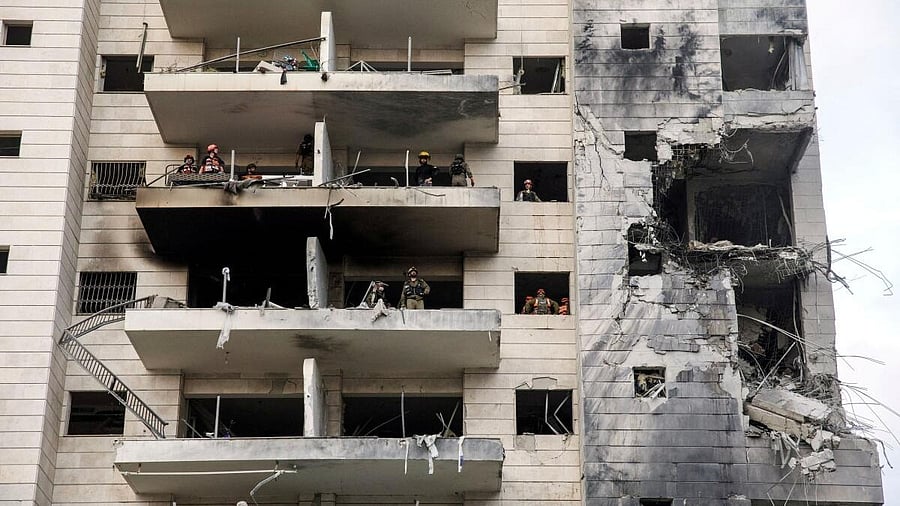
Rescue and security personnel work inside an impacted residential building following missile attack from Iran on Israel, central Israel.
Credit: Reuters Photo
Israel said Monday that it had struck the command center of Iran’s Quds force, a special military unit that coordinates support for Iranian allies in the Middle East and reports directly to the country’s supreme leader.
The strike was the latest bold move by Israel since it launched a series of relentless attacks on Iran’s nuclear and military sites Friday. Since then, it has killed at least 10 generals, including the nation’s second most powerful person after Ayatollah Ali Khamenei, the nation’s supreme leader. The attack and damage on the Quds facility could not be immediately independently verified.
The Quds force coordinates support for Iranian allies, including Hezbollah and Hamas, and conducts intelligence operations. The United States assassinated its former leader, Gen Qassem Soleimani, in 2020.
The Israeli attacks on Iran’s military leadership have dealt a major blow to the military chain of command, and Iran has retaliated by firing hundreds of ballistic missiles, in what has become the deadliest and most direct confrontation between the two countries in decades of off-and-on conflict. So far there has been no sign that either side plans to de-escalate.
Early Monday, the Israeli military was also striking missile sites in central Iran, and warning Israelis to stay close to shelters. A few hours later, sirens sounded in several areas across Israel and the military said that Iran had launched a salvo of missiles.
Israeli police said that two communities in the Tel Aviv district had reported being hit, and the municipality of the nearby central Israeli city of Petah Tikva, where a strike on an apartment building killed at least three people.
The attacks followed a day of strikes on multiple locations across Iran and Israel, rattling citizens in both countries, and particularly in Tehran, which Israel bombarded in a rare daytime assault Sunday afternoon.
The roads leading out of the Iranian capital were packed Sunday, according to the head of the traffic police, residents and images broadcast on Iranian news media. Residents described long lines forming at gas stations and neighbours with suitcases trying to flag down taxis.
The fighting, which began Friday with a surprise Israeli attack on Iran, has been some of the fiercest and most prolonged in the decades-long enmity between Israel and Iran, raising fears of a wider war that could draw in the United States and other powers.
The path to diplomacy appears limited after officials called off talks set for Sunday between Tehran and Washington on the future of Iran’s nuclear program, which Israel says it aims to dismantle with its military campaign.
The Israeli strikes have killed at least 224 people in Iran, according to the country’s Health Ministry. Six top Iranian security chiefs were among the dead, and more than 1,400 people have been injured. In Israel, at least 13 people, identified as civilians, have been killed in Iran’s retaliatory barrages since Friday.